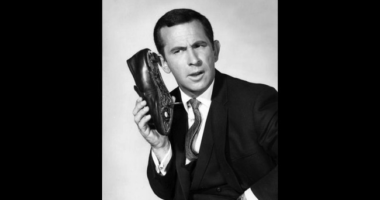When I began Ozempic, in April 2023, I was in the doldrums of perimenopause, with high cholesterol, prediabetic blood sugar levels, and a stone and a half of excess weight giving me crippling back pain.
Having heard all the side-effect horror stories of taking Ozempic (nausea, stomach cramps, constipation or, at worst, an increased risk of pancreatitis and thyroid cancer) it was not a decision taken lightly.
Under the care of Dr Wendy Denning, a private GP in London, I began on a 0.25mg weekly dose that I gradually increased over four months so my body adjusted slowly.
Thanks to this, I dodged most side-effects – although I did suffer excessive hair loss for a while.
Now, three months after stopping the jabs, my health is transformed.
I’m no longer prediabetic, have lost the weight, and feel more energised, more confident and happier.
But how do I maintain the new me?
Until recently my strategy was to wean myself off gradually. Six months ago, I swapped Ozempic for Mounjaro, known as the King Kong of weight-loss drugs for its dual action on GLP-1 and GIP receptors, offering extra metabolic benefits.

Three months after stopping weight-loss jabs, our writer is no longer prediabetic, has lost one and a half stone and feels more energised and confident
Then a friend suggested the cleverest thing to do was not to come off Mounjaro but to microdose it, as there is growing evidence from America – where these medications are being used off-licence beyond their approved indications for diabetes and obesity – for a raft of other health benefits.
Microdosing is where tiny amounts are given to get the benefits without side-effects.
While the trend is currently limited to A-listers and the wealthy – who are often more interested in looking slim than having genuine health concerns – some doctors believe microdosing could have wider benefits, too.
The anti-inflammatory properties of Ozempic,

A friend told Olivia Falcon about the microdosing trick when taking Mounjaro to maintain weight loss

Mounjaro is known as the King Kong of weight loss jabs because of its dual-action impact on the metabolism
Mounjaro and oral semaglutide Rybelsus (for those who prefer a pill over an injection) are being studied.
Early results suggest improvements in cardiovascular and metabolic health, brain function, fertility, autoimmune conditions and neuroprotection from diseases such as Alzheimer’s and dementia. So it’s unsurprising microdosing these drugs is a booming trend.
Tyna Moore is an American naturopathic doctor who went viral advocating microdosing Ozempic. More than 2,000 people have joined her online course on how to do it.
‘GLP-1s have benefits that have nothing to do with weight loss,’ she says. ‘Hundreds of people are reaching out to me, telling [me about] changes in their health.’
Moore speaks from personal experience. She has psoriatic arthritis and says microdosing alleviated her anxiety and depression, and her reduced chronic pain.
Dr Denning says she is
considering Mounjaro microdosing for patients with drink problems, as there is evidence semaglutides help curb alcohol cravings.
She also believes microdosing could effectively lower blood sugars in prediabetic patients, reducing long-term risk of heart disease and possibly dementia, as high blood sugar causes inflammation and this may damage brain cells.
Although microdosing is still quite niche, it is being used by the world’s wealthy one per cent.
‘There is more interest from slim individuals, particularly women, who are exploring it for broader health benefits,’ says Dr Tamsin Lewis, lead Longevity doctor of Solice, a Mayfair-based medical service for the super rich. These, she adds, could be reductions in menopausal brain fog and inflammation, as well as helping to manage cholesterol, ‘which all contribute to longevity and overall wellness’.
But Denning says she is not convinced microdosing should be done indefinitely.
‘We won’t know the long-term effects of these drugs for another five or ten years, so people purely taking them for weight loss really need to think hard about doing even small doses indefinitely.’
And every doctor I spoke to warns about buying online. ‘These drugs are not risk-free, and without medical supervision, there could be serious complications,’ says Lewis. ‘All treatments, especially off-licence uses like microdosing, should be carefully guided by a qualified doctor.’
I’ve decided to try to maintain my weight (nine and a half stone) and improved health with regular exercise, smaller portions, monthly blood tests, and daily weigh-ins. If things start swinging back, I’ll think about Mounjaro microdosing for short periods with the support of my trusted doctor – but for now, I’m determined to do it the old fashioned way.
Olivia Falcon is founder of @theeditorslist

















